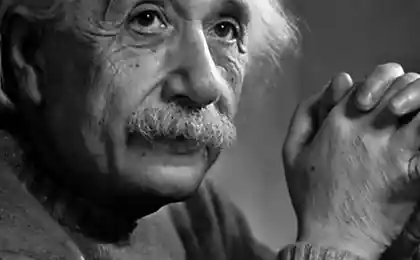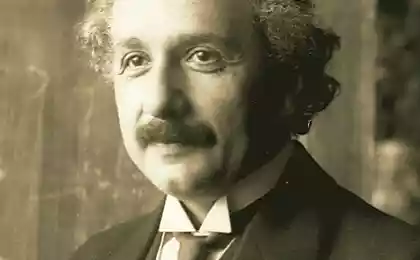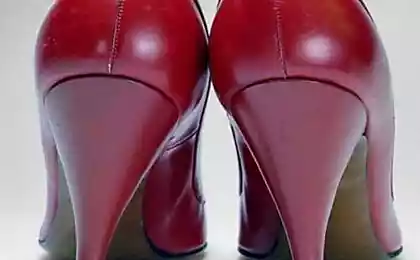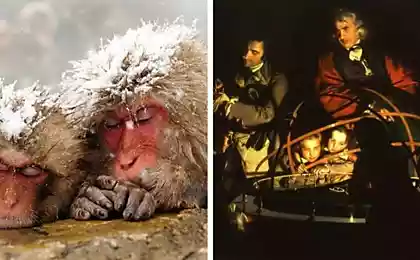629
Albert Einstein never wore socks
Habits geniya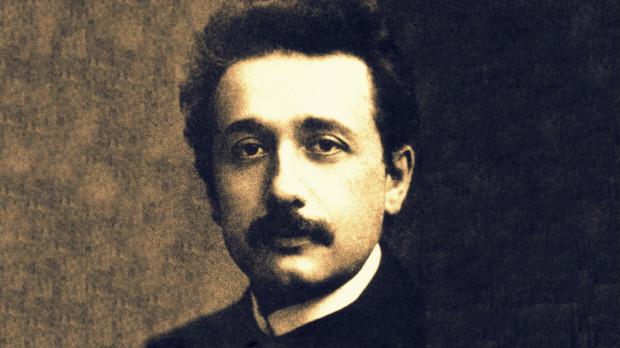
Albert Einstein is mostly known for his enormous contributions to science, and his great-cropped mustache. But it seems very few people know that Einstein was also a great champion of civil rights, and never wore socks.
Let's start with socks, because we know that this part is for you seem very curious. It is noted that after Einstein's second wife died, Elsa, it almost ceased to excite the way, and what he's wearing. Although in his youth he was known as an incredible Shyogol, and is often seen in the elegant, well-fitting suits. It is believed that Elsa was the main reason that Einstein was so concerned about his appearance as Elsa is obviously very concerned about how they look together. And together they have seen very often, because while Einstein was one of the most famous people in the world, he was like a rock star.
After Elsa died, Einstein was given the post of honorary professor at Princeton (in fact, he became a teacher in retirement, which is still allowed to ramble around the university property), and he began to dress comfortably, instead of dressing elegantly. And obviously, it was very unusual to see as an aging teacher goes by without socks in hoodie and sandals.
Einstein did not really have time to worry about what other people think about it, because at the time he pursued a different purpose: he decided to fight racism. Although he spent his life was a fighter for civil rights and freedom, it is in the later years of his life his work in this direction was the most active.
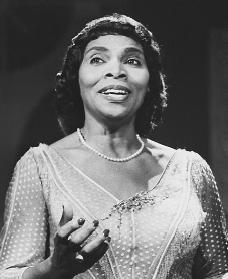
For example, when Einstein heard that African-American opera legend Marian Anderson was not allowed to live in a hotel, he immediately invited her to stay at home. Anderson accepted the invitation to the good, and they remained good friends for life. In the future, Anderson has not just stopped at Einstein, when any owner of the hotel decided that he does not want to see in their world-famous opera singer.
When Einstein heard that Lincoln University was the first university in the United States, which for black students opened courses to obtain academic degrees, he immediately went there and made a speech in which he said that "racism was a white man's disease." This, he said, before he was awarded an honorary nursing degree. Actually, it happened to him constantly: wherever he came - he was awarded the honorary degree everywhere.
via factroom.ru

Albert Einstein is mostly known for his enormous contributions to science, and his great-cropped mustache. But it seems very few people know that Einstein was also a great champion of civil rights, and never wore socks.
Let's start with socks, because we know that this part is for you seem very curious. It is noted that after Einstein's second wife died, Elsa, it almost ceased to excite the way, and what he's wearing. Although in his youth he was known as an incredible Shyogol, and is often seen in the elegant, well-fitting suits. It is believed that Elsa was the main reason that Einstein was so concerned about his appearance as Elsa is obviously very concerned about how they look together. And together they have seen very often, because while Einstein was one of the most famous people in the world, he was like a rock star.
After Elsa died, Einstein was given the post of honorary professor at Princeton (in fact, he became a teacher in retirement, which is still allowed to ramble around the university property), and he began to dress comfortably, instead of dressing elegantly. And obviously, it was very unusual to see as an aging teacher goes by without socks in hoodie and sandals.
Einstein did not really have time to worry about what other people think about it, because at the time he pursued a different purpose: he decided to fight racism. Although he spent his life was a fighter for civil rights and freedom, it is in the later years of his life his work in this direction was the most active.

For example, when Einstein heard that African-American opera legend Marian Anderson was not allowed to live in a hotel, he immediately invited her to stay at home. Anderson accepted the invitation to the good, and they remained good friends for life. In the future, Anderson has not just stopped at Einstein, when any owner of the hotel decided that he does not want to see in their world-famous opera singer.
When Einstein heard that Lincoln University was the first university in the United States, which for black students opened courses to obtain academic degrees, he immediately went there and made a speech in which he said that "racism was a white man's disease." This, he said, before he was awarded an honorary nursing degree. Actually, it happened to him constantly: wherever he came - he was awarded the honorary degree everywhere.
via factroom.ru
The human body contains about 81,500 kcal
Scientifically proven: good people more easily hurt others

